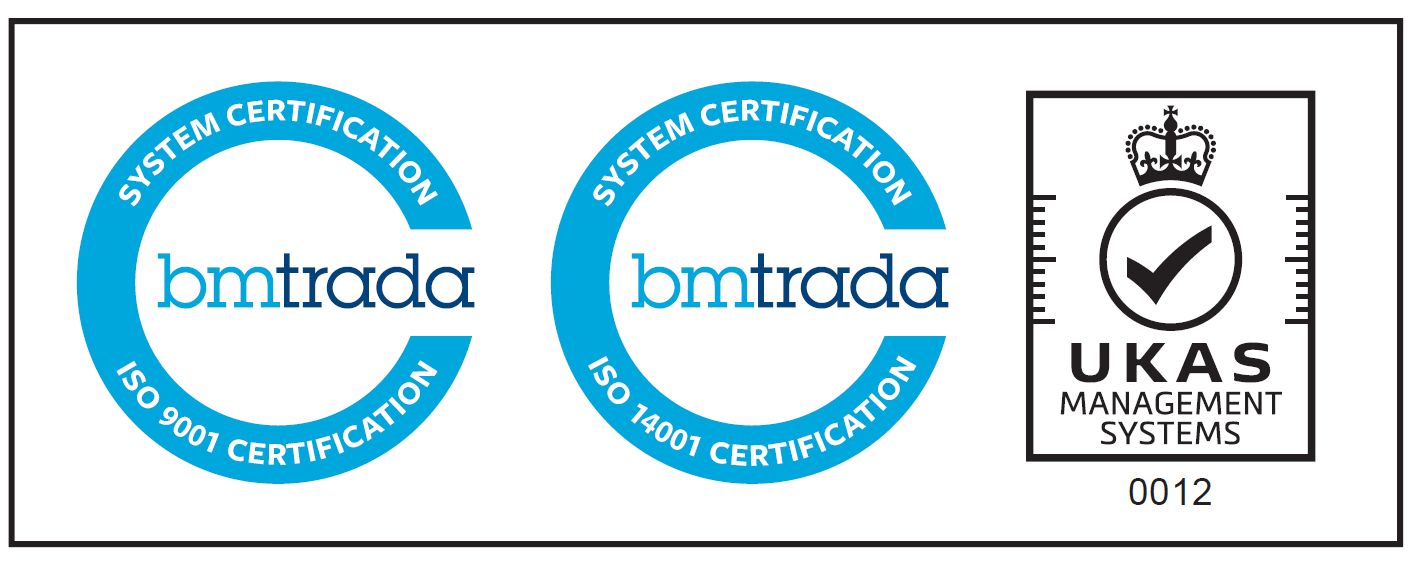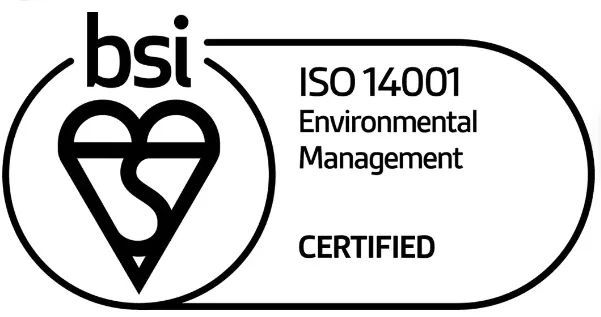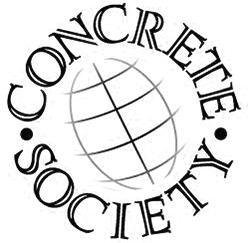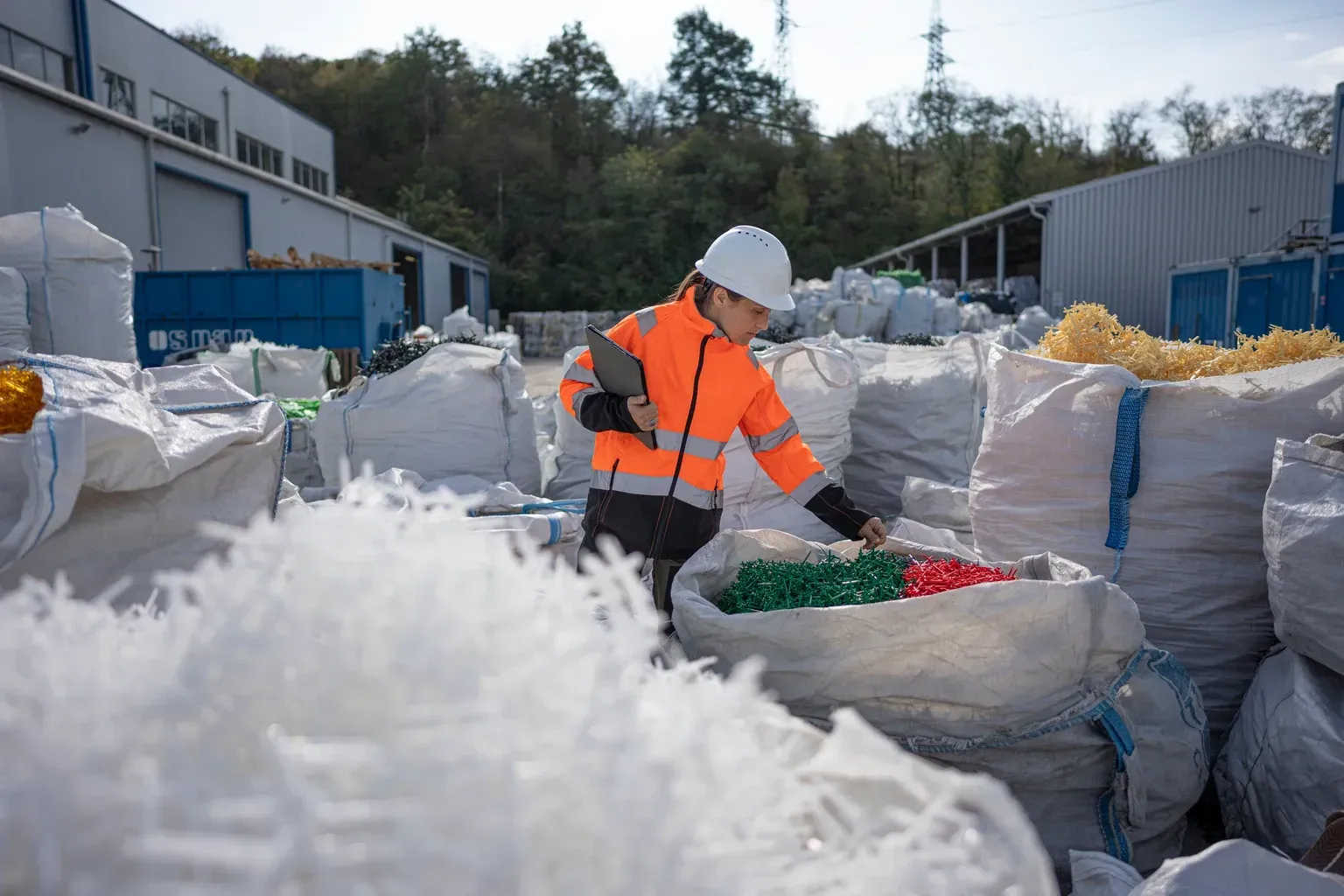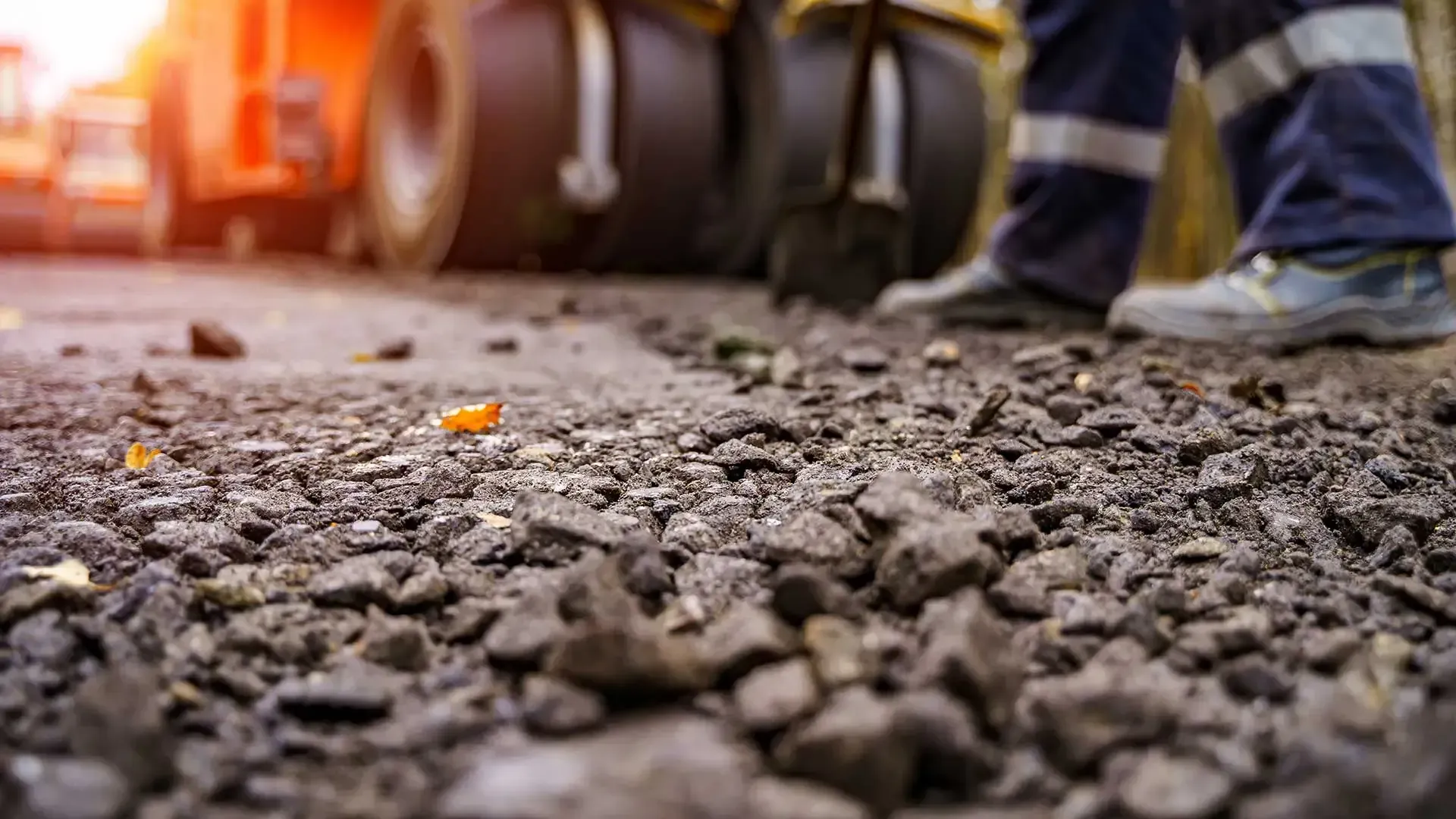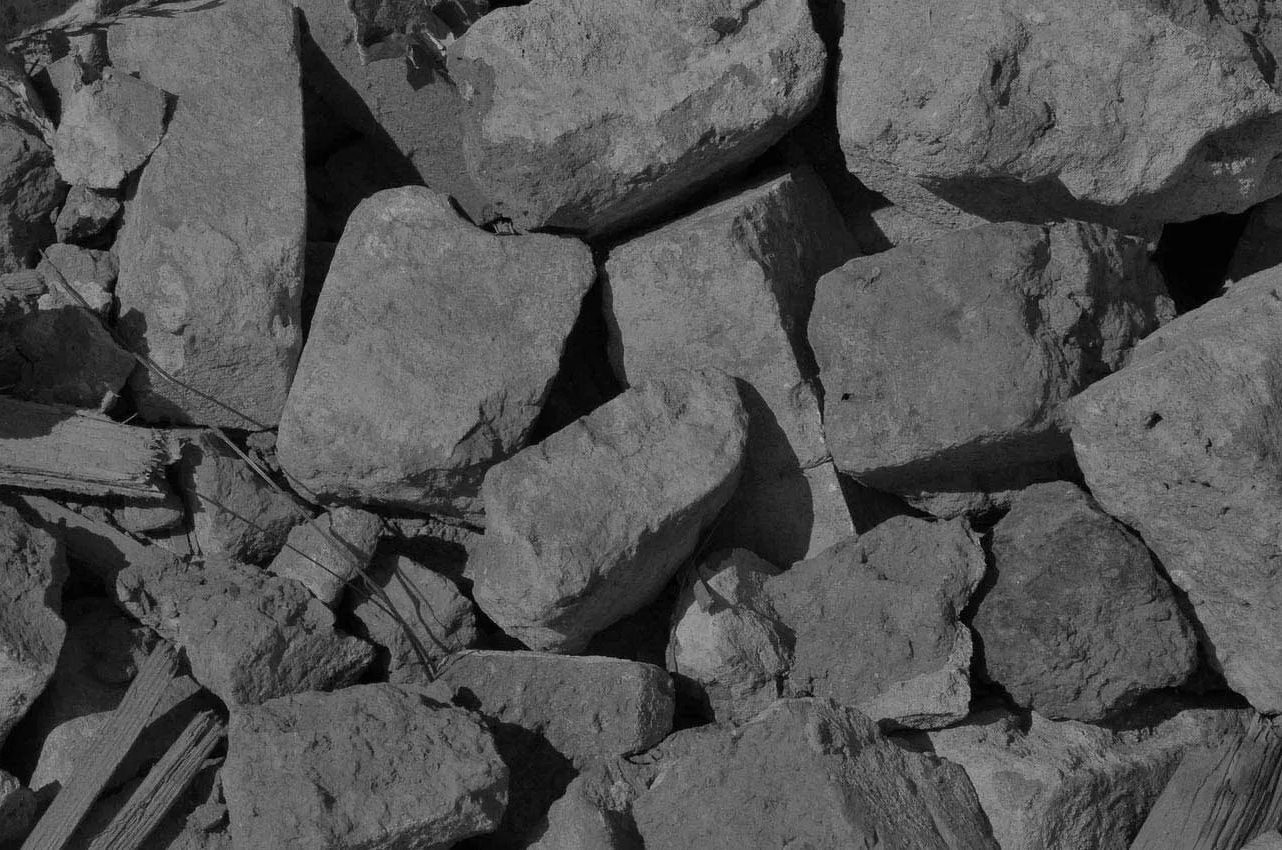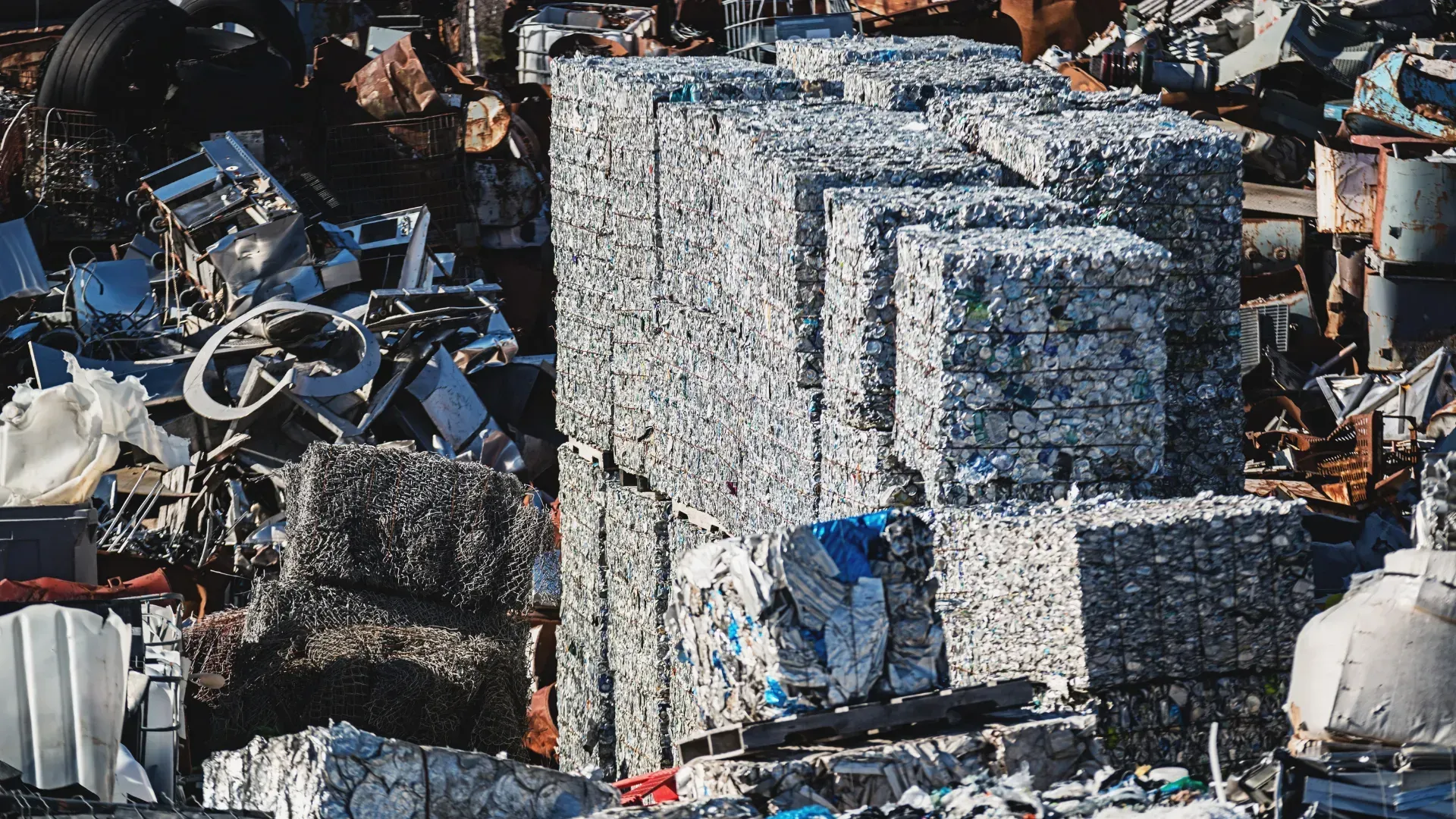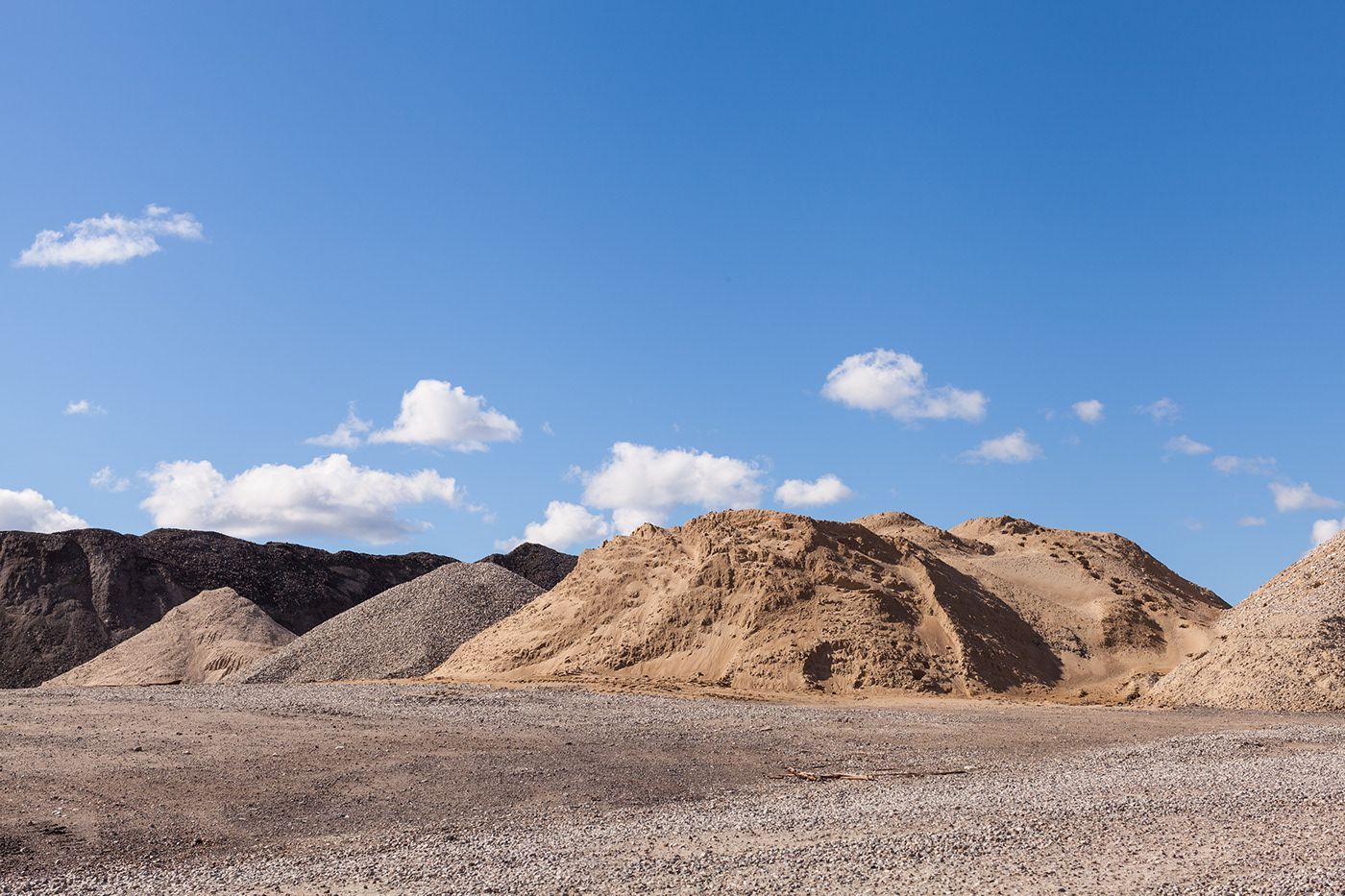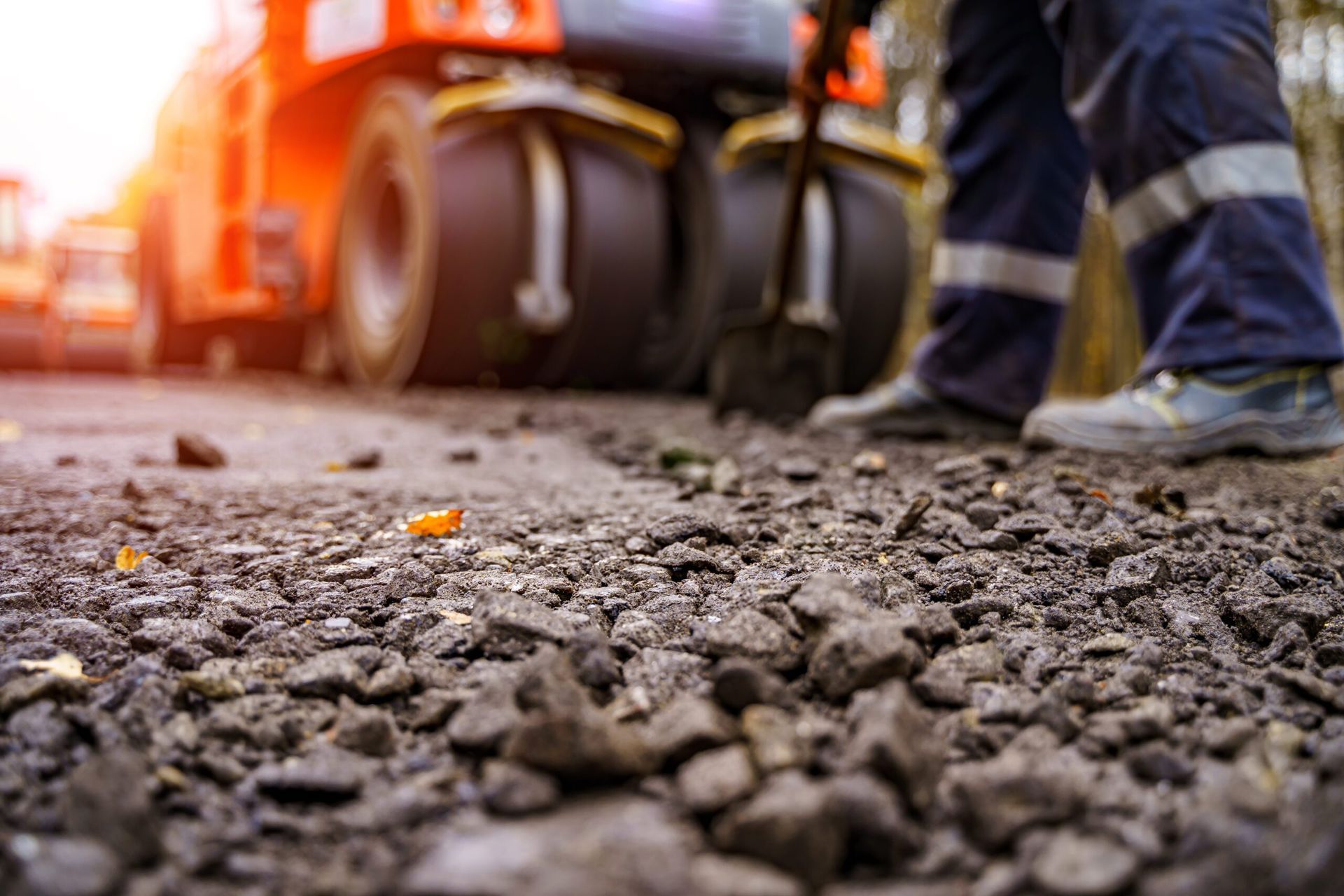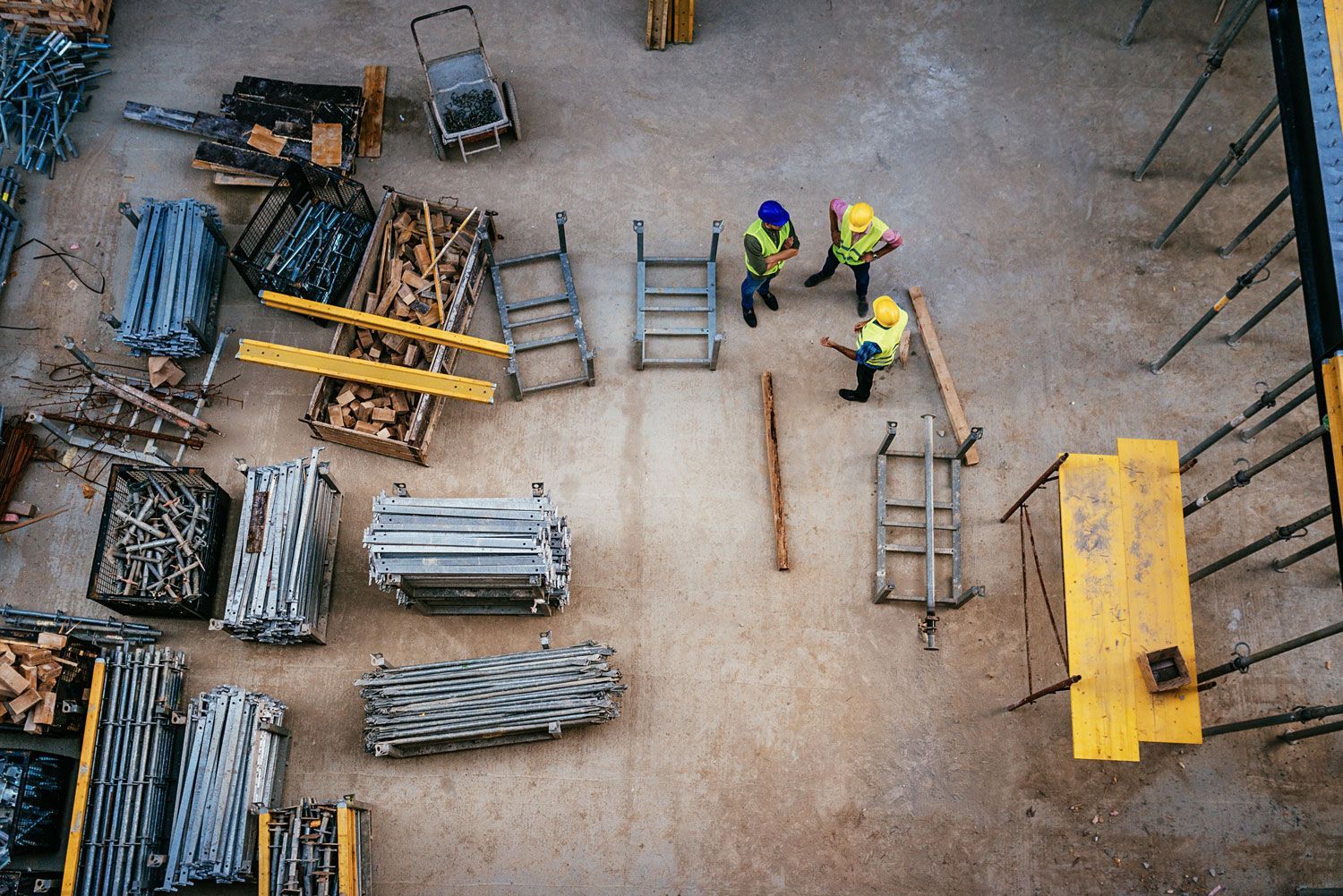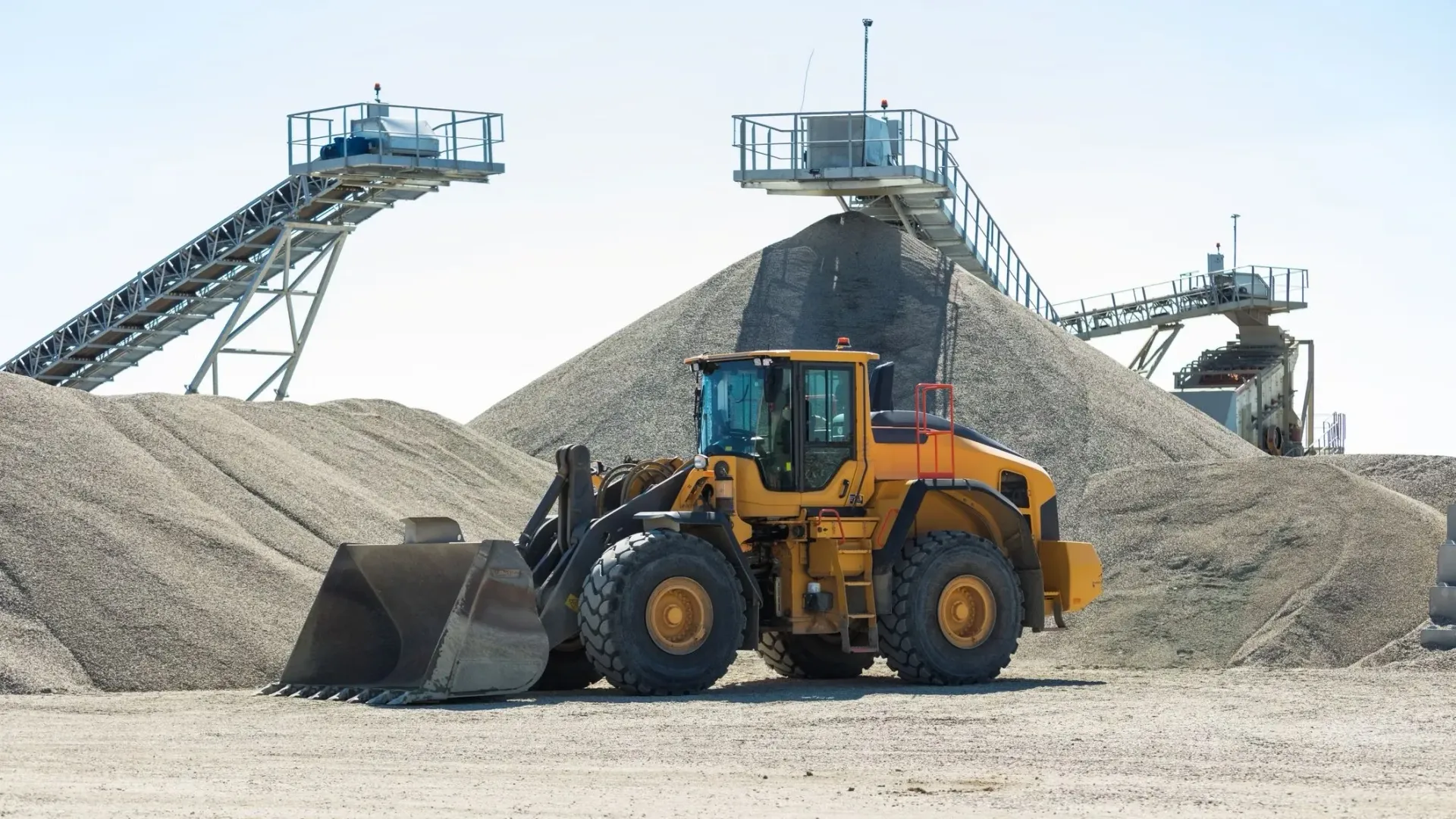The Essential Guide to Recycled Aggregate Materials
If you are at all familiar with construction, chances are that you have an idea of what aggregate materials are. Even so, you still might not realise how integral they are to our lives. Things that you see and use everyday - such as roads and pavements - are only available to us thanks to aggregate. At this point, you might be wondering what ‘aggregate’ actually is and how it works. Fortunately, we’ve put together this essential guide, full of all the need-to-know information you need when it comes to aggregate materials.
What are Aggregate Materials?
Aggregates are raw materials that are produced from natural sources and extracted from pits and quarries, including gravel, crushed stone and sand. When used with a binding agent, such as water or cement, they are used to form compound materials. Many types of commonplace construction materials, including concrete, asphalt and mortar, utilise aggregate as a key ingredient. In fact, aggregates make up between 60% to 75% of the volume of concrete, which reduces production costs and increases the resistance of concrete mixes. These properties make aggregate indispensable when it comes to building and maintaining roads, pavements, car parks, train tracks, certain types of buildings and much more. Aggregate materials are, quite literally, the building blocks of our society.
In order to form a concrete blend, it’s essential that the aggregate is cleaned thoroughly and does not contain any harsh chemicals or clay fragments. Alongside this, aggregate shape is also key. High-quality concrete is available in multiple sizes, which will inform the amount of cement and water that is required for the process to be successful, and also determines the end product’s durability.
Types of Aggregate
Granite
Granite tends to be the most common solution for the production of high-quality concrete because it’s available in several colours and variations. It can also be used for decorative purposes, for example, on a driveway or patio. Granite is formed by quartz and mica crystals, which establish the colour of the rock.
Limestone
Limestone is a sedimentary rock composed of calcium carbonate which is used for a variety of construction purposes such as building materials for road construction. It is also used to create lime which can help to neutralise acidic soils.
Sandstone
Sandstone makes up about 20-25% of all sedimentary rocks. It is made up of sand-sized grains, which means it has varying levels of weather resistance. It is most commonly used as a building material or in asphalt concrete.
Gravel
Gravel aggregates have to go through a process that involves straining rocks and breaking down pieces of stone. Although it doesn’t have the same level of strength that granite does, gravel is often more cost-effective to produce and purchase. It also benefits from having a lower volume of radioactive content. Gravel is frequently used for creating foundations, making them ideal for road construction.
Secondary Aggregates
Secondary aggregates act as a low-cost alternative to limestone and granite, although they are much less strong. Secondary aggregates have a wide range of purposes, including road construction, reinforcing weaker soils and as a large-scale filler. Sand is a great example of a secondary aggregate - it adds bulk and solidity to materials such as concrete.
What are Recycled Aggregate Materials?
Recycled aggregate is the term used to describe the material produced from crushed construction and demolition waste, predominantly consisting of concrete but also including materials such as sand, gravel, slag and crushed stones. They are created by reprocessing materials that have previously been used in construction work. Recycled aggregate is a great option for providing the quality materials that are needed during a construction project. With many consumers and businesses growing more concerned about their impact on the environment, there has been a movement to reuse materials from more sustainable sources, and aggregates are a key example of this. In many cases, recycled aggregates have become an ideal alternative to the conventional type. In fact, of the 200 million tonnes of aggregate that is used in the UK annually, around 57 million of these are sourced from recycled materials.
The first step to producing recycled aggregate is to collect demolished concrete and other materials from areas such as roads, bridges and buildings. This material is then refined, which means ensuring that it doesn’t contain any other foreign materials such as wood or metal chunks that could affect the final product’s strength. Next, the concrete is sent through a crushing machine which uses an impact force to break down any large pieces. Finally, the crushed product is mixed with an aggregate to help it reach the desired consistency and density.
The Benefits of Using Recycled Aggregate
Cost-Effective
Recycled aggregates offer extremely good value for money without having to compromise on quality. They will always be of the same standard as new materials coming in from the quarry. On top of this, if the recycled aggregate is produced locally, the transportation fees will be significantly reduced.
Eco-Friendly
Of course, one of the biggest benefits of opting for recycled aggregate is how environmentally friendly they are. Recycled aggregates are integral to the progression of the construction industry in its pursuit to reduce the emissions it produces long-term. Gravel mining, for instance, requires a large amount of resources which are harmful to the environment. To dispose of the surplus sand and gravel required for any construction work, all vegetation must be cleared to make space for digging. Because of the recycled gravel coming from construction sites, there is less of a need for continuous mining.
On top of this, the simple act of recycling concrete is sustainable in the sense that it reduces the amount of waste material that is sent to landfill, as any embedded excess material such as metal can also be reused. This once again minimises the environmental impact of aggregate extraction operations.
Application
Large portions of aggregate that have been crushed up can be used for a variety of general bulk fills, as well as a base or fill in for drainage structures and road construction. After the contaminants have been removed through a process of screening, air separation and size reduction, the crushed recycled aggregate can then be used for a range of projects, like concrete for pavements, curbing and bridge foundations.
Uses of Recycled Aggregate
There are several different types of recycled aggregate which can be produced, each with their own uses. For example recycled concrete aggregate is most commonly used for compaction and is suitable for the first layer of building as it works perfectly for wet or soft ground. Other types of recycled aggregate are used for the following purposes:
● Pipe bedding - commonly used for bedding and surrounding pipes.
● Dust - commonly used for backfill trenches.
● Sand - commonly used for landscaping.
● Topsoil - used for a number of construction projects.
How Much Does Recycled Aggregate Cost?
Recycled aggregate is widely considered to be much cheaper than stone or standard concrete. This is because it doesn’t have to be mined and is relatively easy to produce. More often than not, businesses are also offered tax rebates or rewards for utilising renewable materials, which can further increase the overall amount saved.
Choose WM Thompson & Sons Ltd For Building Aggregate & Other Construction Materials
If you’re looking for a reliable recycled aggregate supplier, look no further than William Thompson & Son. We combined traditional values with the latest technological advancements to provide our customers with all of the high-quality recycled aggregate products they need to complete their project to the highest standards. With over 75 years of experience in the construction materials industry, we are more than equipped to rival both national and international companies when it comes to price, quality and customer service.
What Aggregates Do We Supply?
We supply the following recycled aggregates:
● Crushed concrete
● Hardcore
● Aggregate gravel
● Asphalt products
● Reclaimed stone
We are also able to take on any special requests. The recycled aggregates that we supply are subject to rigorous quality control procedures, ensuring that you’re providing only the best construction materials.
Why Recycled Aggregates?
We are at a point where recycling, reusing, repurposing and avoiding landfill waste is of critical importance. Human civilization as we know it and the world around us depends upon the environmentally responsible manner in which we continue to move forward.
With this in mind, we cannot justify letting perfectly usable materials go to waste. Crushed concrete, asphalt products, gravel and stone products can all be reused in the construction of roads, paths, car parks, public spaces and much more - the list is endless. This is why we proudly supply customers in and around Glasgow with quality recycled aggregate products.
The benefits of choosing recycled aggregates are enormous - from a financial point of view, you have made savings as a company since recycling the resources we already have is faster and cheaper than quarrying them anew. From an ecological standpoint, we have prevented unnecessary landfill waste.
Invest in a greener future by purchasing recycled aggregates from William Thompson & Son.
Contact us today for more information.
